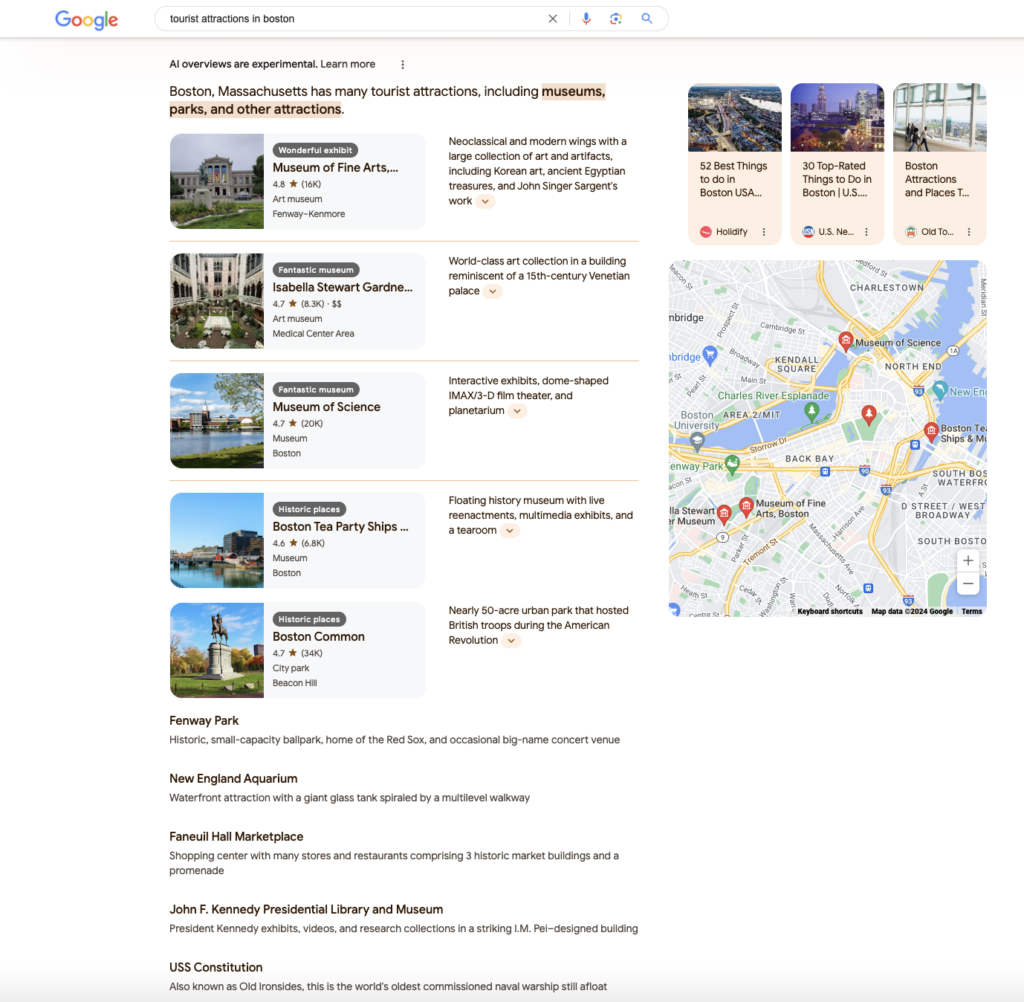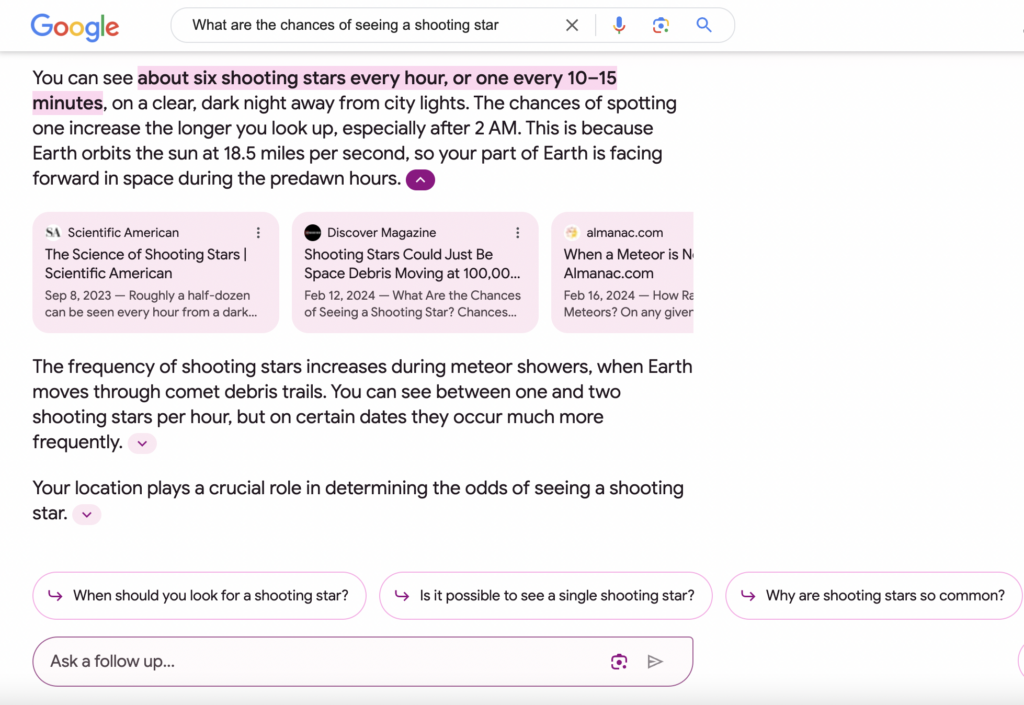Think search results have been feeling a bit stale lately? You’re in luck! Many search engines, including global behemoth Google, are embracing a new approach to the online search experience that incorporates generative artificial intelligence (AI). That’s right — in addition to creating art, writing essays, engaging in conversations, and mimicking human voices, AI is now revamping search engine results pages (SERPs). So, what is generative search? How is it transforming SERPs? And how will it affect your online search experience?
Generative Search 101
What is generative AI?
Generative AI is a subset of artificial intelligence techniques and models designed to generate new data or content that is similar, but not identical, to the idea it was trained on. Generative AI has become increasingly popular in the last few years. You’ve probably heard about ChatGBT, an AI chatbot released in late 2022, and AI image generators like DALL·E. Generative AI can produce text, images, videos, and a variety of other data.
What is generative search?
Generative search is a new search experience in which the search engine’s algorithm uses generative AI to provide solutions to search queries instead of simply providing a list of individual webpages. In practice, this can take many forms.
For example, if you ask about tourist attractions in Boston, you might be presented with a list of suggestions compiled from several sources. A map shows you where each attraction is located, and a few articles are linked for easy access.

Or, if you search for chocolate cake recipes, you might be presented with a few recipe ideas (including links and summaries) as well as a list of helpful baking tips and common follow-up questions.

And if you ask something that has a simpler answer, you’ll get a simpler result. For example, if you ask about your chances of seeing a shooting star, you’ll get a direct answer accompanied by a few resources:

Often, generative search will include follow-up questions at the end, anticipating where your curiosity might lead you next.
How do I use generative search?
Many different AI search tools are available. Google offers Gemini, which was previously known as Bard. They’re also testing out a tool called Search Generative Experience (SGE), which you can access through Labs.Google if you’re in one of the 120+ countries where it’s available. (We used SGE to provide the examples above.) Microsoft’s Bing uses ChatGPT technology to fuel Copilot, previously known as Bing Chat. You could also try a start-up like Perplexity, Phind, or You.com.
How does generative search work?
Large language models (LLMs), which are very large deep learning models trained on vast amounts of data, power generative AI systems. This technology helps the search engine understand what the user is asking, process related content, and provide a relevant (and hopefully helpful) response.
What are the benefits of generative search?
- Quick Summaries: Generative search is excellent if you want to quickly understand the gist of a topic without having to visit several sites or skim through extraneous details. In an instant, it can provide a quick overview as well as handy resources in case you decide to do a deeper dive into the subject.
- Query Understanding: With its impressive language skills, generative search is generally much better at understanding complex queries and providing relevant answers.
- Follow-Up Questions: Generative search can guide you down a rabbit hole through related topics and follow-up questions. If you want to learn more about a topic and you don’t know where to start, generative search is happy to be your guide.
- Visual Information: Some questions are best answered with photos or graphics in addition to text. For example, if you ask about the original cover of The Great Gatsby, a generative search won’t just tell you that the book’s cover is Francis Cugat’s 1925 painting entitled “Celestial Eyes.” It will also provide an image so you can see the painting for yourself.
What are the limitations of generative search?
- AI Hallucinations: AI language models have been known to “hallucinate,” drawing information out of thin air and presenting it as truth. It’s important to take the information you receive with a grain of salt and do your due diligence if it’s an important query (especially anything related to your health, safety, or finances).
- Less Real Estate for Ads: If you purchase Google Ads, you’re likely wondering how generative search will impact your advertising success. Although Google is experimenting with generative AI ads and shifting around the placement of ads, the downgrade in ad visibility is currently a concern.
- Lack of Data Transparency: Some generative search tools, including Google’s PaLM 2, are closed models, so the public isn’t able to fully understand how the tool comes to specific conclusions. This lack of transparency may cause distrust and unease.
- Geographic Limitations: Some AI search tools, like GSE, are only available in certain countries as of April 2024.
What does this mean for SEO and digital advertising?
As generative search becomes increasingly popular, you might wonder how it will impact your digital marketing efforts. Bookmark this blog because we’ll soon be discussing how generative search may affect SEO strategies and Google Ads.
If you’re hoping to build a beautiful, effective website that will rank on Google, contact 417 Marketing for help. Our team of knowledgeable, creative, and passionate professionals specializes in SEO, web design and maintenance, and Google Ads, and we have successfully completed over 700 websites since our inception in 2010. Contact us and learn more about what we can do for your company.



